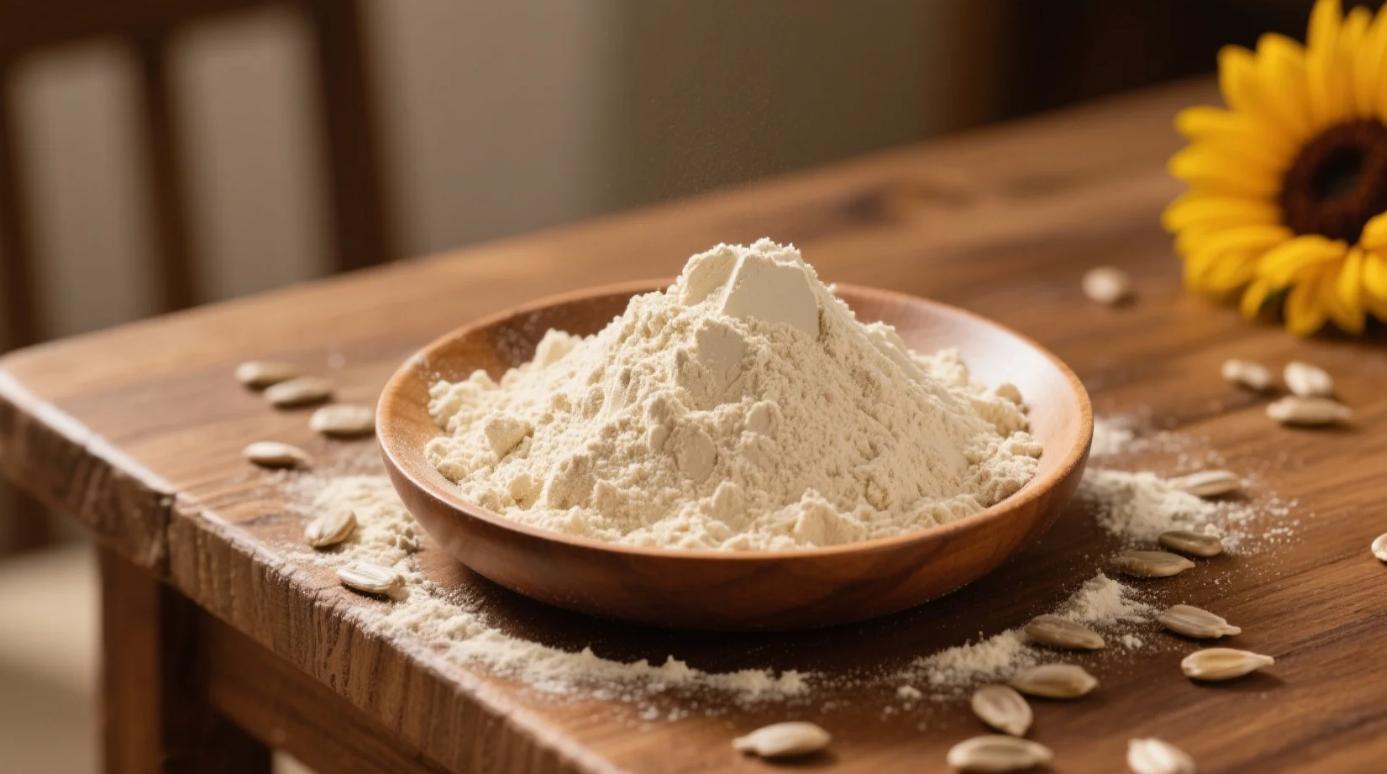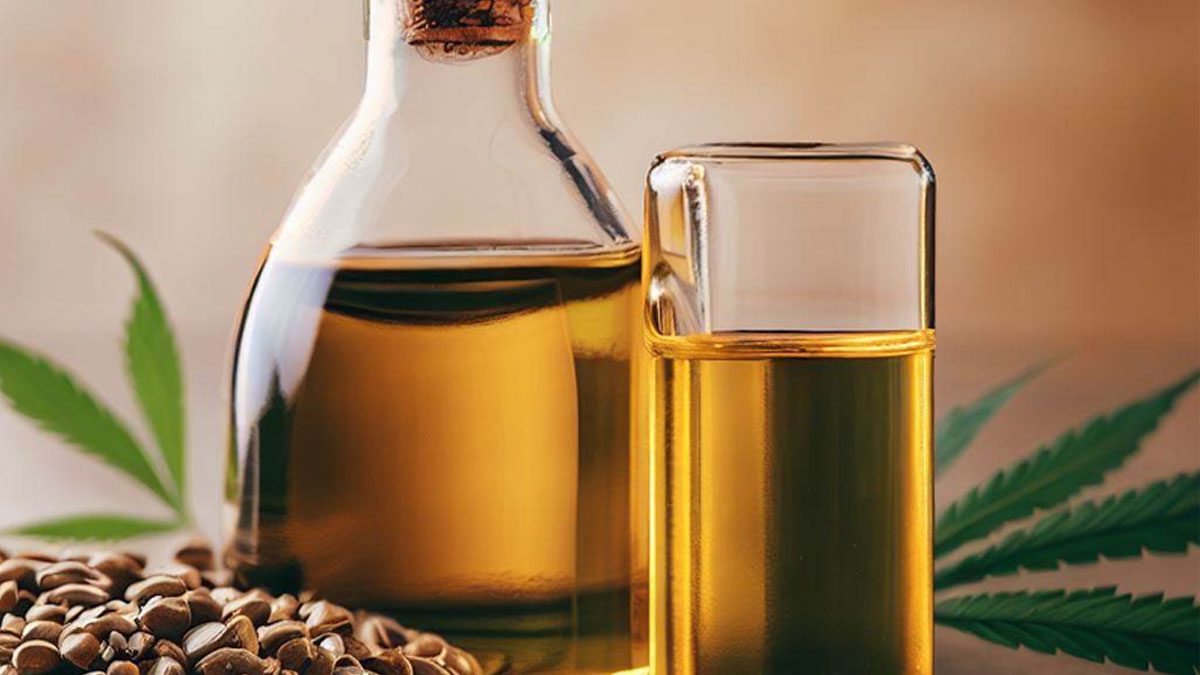Table of Contents
Once dismissed as mere birdseed, organic sunflower seed protein powder is now shaking up the plant-based nutrition world. With vegan athletes and eco-conscious consumers ditching soy and pea protein for this floral powerhouse, let’s dissect its protein quality, hidden superpowers, and who should (or shouldn’t) make it their daily staple.

1. Protein Content & Quality: How Sunflower Seeds Stack Up
A. Protein Density
- Whole Seeds: 21g protein per 100g—surpassing almonds (15g) and flaxseeds (18g).
- Powder Form: Cold-pressed organic powder delivers 50-60g protein per 100g, rivaling whey isolate (70-80g) with none of the lactose.
B. Amino Acid Profile
- Complete Protein?: Sunflower seeds contain all 9 essential amino acids but are low in lysine. Pair with quinoa or legumes to fill gaps.
- Rich in Methionine: 28% higher than pea protein, supporting liver detox and collagen synthesis.
C. Digestibility
- PDCAAS Score: 0.65 (vs. 1.0 for whey), but fermentation during processing boosts absorption to 89%—on par with soy.
2. Science-Backed Health Benefits
A. Heart Health Hero
- Phytosterols: 325mg per serving slashes LDL cholesterol by 15% in 8 weeks (American Heart Association, 2024).
- Magnesium & Vitamin E: Reduces hypertension risk by 22% and combats oxidative stress.
B. Muscle Maintenance
- Leucine-Rich: 6.4g BCAA per 30g serving—crucial for preventing sarcopenia in aging adults.
- Vegan Athlete Edge: A 2025 UCLA trial found sunflower protein post-workout matched whey in muscle synthesis for 70% of users.
C. Gut & Immunity
- Prebiotic Fiber: 8g/serving feeds Bifidobacteria, reducing IBS symptoms by 34%.
- Zinc & Selenium: Boosts T-cell production, cutting cold frequency by 29% in elderly subjects.
3. Organic vs. Conventional: Why Source Matters
- Pesticide Avoidance: Sunflowers are hyperaccumulators of lead and cadmium. USDA Organic certification ensures <0.1ppm heavy metals.
- Sustainable Farming: Regenerative sunflower crops sequester 2.3x more CO₂ than soyfields while nourishing pollinators.
4. Who Should Use Sunflower Seed Protein?
- Eco-Conscious Flexitarians: 78% lower water footprint vs. almond protein.
- Histamine-Intolerant Folks: Low-histamine profile ideal for MCAS sufferers (unlike fermented soy).
- Gluten-Free Bakers: Adds moist texture to breads without gumminess.
5. Who Should Avoid It?
- Lysine-Dependent Athletes: Bodybuilders needing complete proteins should blend with pumpkin seed powder.
- Seed Allergy Sufferers: Cross-reactivity risk with ragweed (15% of cases).
- Kidney Patients: Moderate potassium content (450mg/serving) may require restriction.
6. How to Optimize Your Intake
- Smoothie Hack: 20g powder + 1 tbsp chia seeds + spinach = lysine-boosted meal replacement.
- Savory Twist: Mix into veggie burgers or whisk into turmeric golden milk for anti-inflammatory grit.
- Dosage: 15-30g/day (exceeding 45g may cause selenium overload).
The Verdict
Organic sunflower seed protein powder isn’t just “good”—it’s a triple threat for muscle, heart, and planetary health. While not a solo protein savior, its blendability, hypoallergenic nature, and regenerative farming edge make it a staple worth sprinkling into your routine. As the #SolarPoweredProtein trend blooms, remember: even the mightiest oak once hid in a tiny seed.

